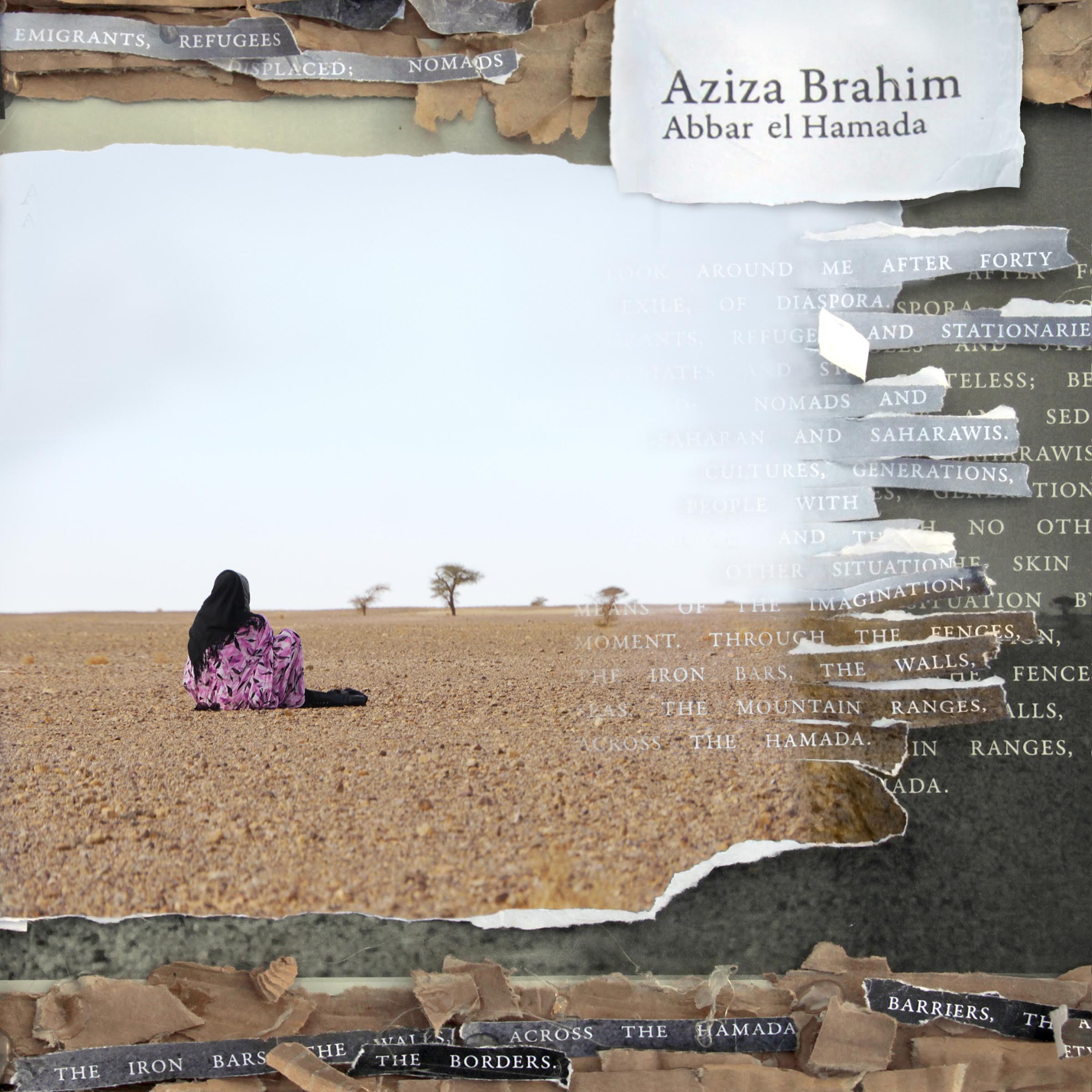Aziza Brahim’s most recent release, Abbar el Hamada, builds bridges and unites the many worlds she has lived in, elements which are kin through language, landscape and history. Brahim is a Saharawi singer and activist currently living in Barcelona in exile from her motherland, the disputed territory of Western Sahara. Since her birth in a refugee camp in the Algerian desert, she has lived and studied in Cuba, developed her skill as a musician in the Sahara and settled in Spain, where she has built her reputation and livelihood. Abbar el Hamada bears shades of her journey as a refugee and immigrant through the Spanish-speaking world, but always remains rooted in the landscape of arid West Africa.
Brahim herself frames the album as a conversation “between emigrants, between refugees…between cultures, between generations, between tribes…between placed, postponed and displaced.” We feel this dialogue throughout, between the culture of her home and those that are tied to it through a tangled web of history. The album begins with “Buscando la Paz,” a song featuring distinctly Arab-esque vocals sung in Brahim’s native Hassaniya dialect over instrumentals that have notes of Spanish flamenco and Arab pop. The flamenco influence runs throughout the album, popping up again in the plaintive, Spanish-language song “El Canto de la Arena,” which also bears the nostalgic, yearning quality of Portuguese fado and Cape Verdean morna. Brahim’s connection to flamenco feels very natural, as it surely shares roots with her Saharawi music in the Moorish culture that dominated both Northern Africa and Spain in the Middle Ages. Most prominent in her crisp and emotive voice, however, are the endless sands of the Sahara and the melodies and inflections of her homeland, with feet in both African and Arab histories.
More than on her previous album, Soutak, Brahim has her ears to contemporary West Africa, turning particularly to the music of Mali for inspiration–and for guitarists Kalilou Sangare and Samba Toure, who join her on this album. The rocking, powerful track “Calles de Dajla” is driven by a Saharan “desert rock” groove with a very Malian flavor, complete with djembe breaks and guitar stylings reminiscent of Amadou Bagayoko or Ali Farka Toure. “La Cordillera Negra” could very well be a collaboration with Mali’s Super Rail Band, with the clean, complex guitar lines and the Cuban-inspired feel. After listening to “El Wad,” one could even describe her as a Saharawi parallel to Mali’s Fatoumata Diawara, and the similarities go deeper than the quality of their voices and the energy of their music. Both singers beautifully blend musical styles from around the world with the traditional musics of their birthplaces, and both share an impassioned, political spirit yearning for justice, peace, and unity.
Central to Brahim’s music, and particularly this album, is this deeply personal, emotional and political voice, which she sees as inseparable from her artistry. Abbar el Hamada, which translates to “Across the Hamada” (hamada being the rocky desert along the border of Algeria and Western Sahara, host to many refugee camps), feels like an expression of homesickness, heartache for the sufferings of the Saharawis, anger at Morocco’s political machinations in Western Sahara, and frustration with having to live a life as a refugee and immigrant.
Reflecting on the title, Brahim says, “We are suffering an injustice that condemns us to try and survive in an environment as inhospitable as the hamada.” Humble, yet steadfast and powerful, she uses her graceful, moving voice to bring attention to this injustice and support her Saharawi kin. The title track has a hopeful, resolute spirit, seeking transcendence over the ordeal of the desert refugee camps that have become an unwanted home to so many Saharawis. Brahim’s own musical beginnings are rooted in these refugee camps, where music was a vital source of strength, solace, and expression. “Buscando la Paz” and “Los Muros” decry the perpetual discord and disputation over land and borders that have uprooted and exiled people all around the world, often sending them to a Europe that is not always welcoming. Abbar el Hamada is a call for peace in Western Sahara and across the globe, for the breaking down of walls and the building of bridges, across cultures, landscapes and generations. When the album is released on March 4, seek it out, and listen to Aziza Brahim sing her manifesto for home.










